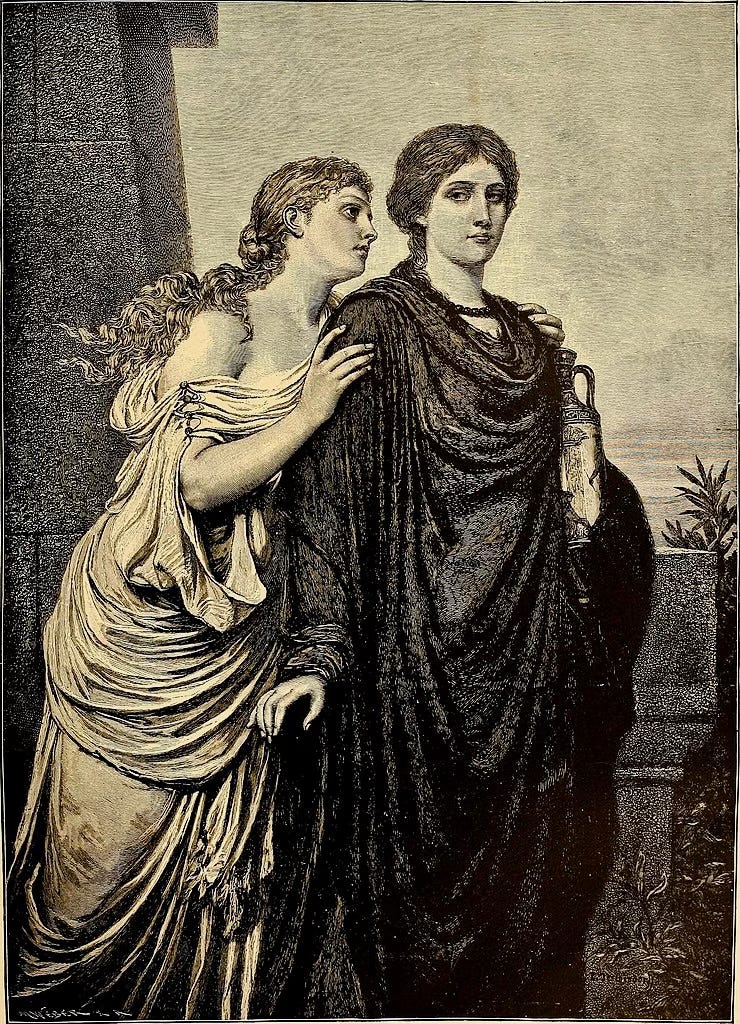The shaping and self-organising of phrases in recitation is the ultimate proof in the pudding, that the law of tonal prominence has at last released the rhythmic tonal motion, the music, of ancient Greek prose and verse. Perhaps the greatest treasury of all to be tapped by the new law is that of ancient tragic and comic dialogue. Nowhere is the reward so immediately present as when Greek iambic verse comes to life. The words seem to answer their speaker and sing themselves, just like when you crack the reading of a line from Shakespeare. Here is the opening speech, or salvo, of Sophocles’ Antigone, spoken by the heroine:
ὦ κοινὸν αὐτάδελφον | Ἰσμήνης κάρα,
ἆρ᾽ οἶσθ᾽ ὅ τι Ζεὺς | τῶν ἀπ᾽ Οἰδίπου κακῶν
ὁποῖον οὐχὶ νῷν | ἔτι ζώσαιν τελεῖ;
οὐδὲν γὰρ οὔτ᾽ ἀλγεινὸν | οὔτ᾽ ἄτης ἄτερ
οὔτ᾽ αἰσχρὸν οὔτ᾽ ἄτιμόν (|) ἐσθ᾽, ὁποῖον οὐ
τῶν σῶν τε κἀμῶν | οὐκ ὄπωπ᾽ ἐγὼ κακῶν.
καὶ νῦν τί τοῦτ᾽ αὖ φασι | πανδήμῳ πόλει
κήρυγμα θεῖναι | τὸν στρατηγὸν ἀρτίως;
ἔχεις τι κεἰσήκουσας; | ἤ σε λανθάνει
πρὸς τοὺς φίλους στείχοντα | τῶν ἐχθρῶν κακά;
In Gilbert Murray’s translation:
My own, mine sister, O beloved face,
Tell me—of all the curses of our race,
What curse shall God not shelf off thee and me?
Surely in is no pain, no misery,
No vileness or dishonour, that we two
Have not already seen; and now this new
Edict, proclaimed by our new Prince's word
On whole our people . . . knowst thou? Hast thou heard?
Or is it hid from thee? There comes a fate
On one we love meet for the worst we hate.
Listen, and try it yourself! Such operatic iambs—ah Shakespeare’s soft English can only dream!
David
















Tragic Iambs!